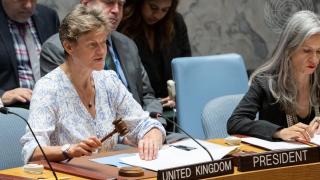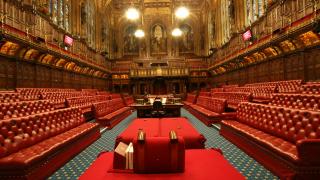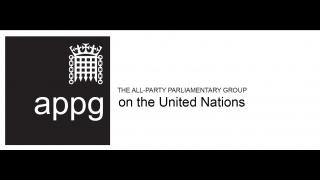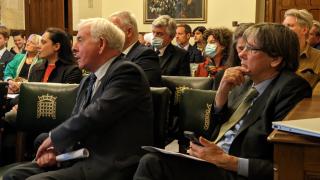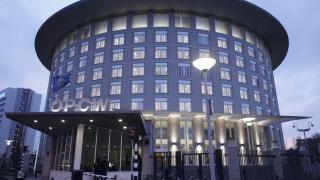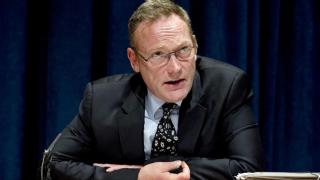
On 4 December the All-Party Parliamentary Groups on the UN and on Drones hosted a meeting with UN Special Rapporteur Ben Emmerson QC and Professor Michael Clarke, Director-General of RUSI. The meeting focussed primarily on Ben Emmerson’s ongoing inquiry into the civilian impact of combat drones, and particularly their use outside of conflict zones.
During his presentation, Mr Emmerson raised concerns over the lack of accountability for the CIA-led drone strikes in Pakistan, particularly those strikes occurring between 2005-2011 in Waziristan. He went on to welcome President Obama’s announcement in May 2013 of plans to move responsibility for armed drone operations away from the CIA to the Department of Defence, where operations would be subject to more Congressional oversight.
Both Professor Clarke and Ben Emmerson spoke of the contrasting practices of the UK and US governments in deploying armed drones. Unlike the US, the UK only operates armed drones in Afghanistan and apparently never when there is risk of civilian casualties. There was also agreement between the speakers on the likelihood of UK intelligence being used by the US to support their armed drone operations outside areas of armed conflict – operations which are incompatible with UK policy.
Professor Clarke said ‘we share information and it’s very hard to say that it is not used to target individuals. There’s a reasonable presumption that sharing information makes us complicit in the US policy…the UK silence [on the UK’s role in the US drone programme] is deafening.’
On complicity, Mr Emmerson said ‘we agree that intelligence from the UK will be deployed for lethal operations.’
Professor Clarke further commented ‘ultimately what we want is a declaration that information that is shared…cannot be used for this purpose [targeted killing outside armed conflict]’
In the context of the UK’s plans to end combat operations in Afghanistan, Mr Emmerson remarked that it is unlikely that the UK’s fleet of armed drones be returned to the UK. Instead, he anticipates that they will be redeployed overseas (potentially in Africa) to support counter-terrorism operations.
During the debate, both speakers highlighted the trend towards greater autonomy in drone technology and acknowledged that international regulation may be required to ensure that future drone technology complies with the laws of armed conflict.
The event was well-attended by parliamentarians, including members of the Foreign Affairs and Intelligence and Security Select Committees, members of the diplomatic community and representatives from civil society.
The meeting was co-chaired by the respective chairs of the UN APPG and the APPG on Drones, Lord Hannay and Tom Watson MP.
Click here to read the interim report from Ben Emmerson QC's inquiry on drones
Audio from the event
Click here for part one, featuring Ben Emmerson QC's introductory presentation.
Click here for part two, which features Mr Emmerson's remarks on fully autonomous weapons and Israeli drone use in Gaza, as well as Professor Clarke's comments on UK information sharing with the US and on the trend towards greater autonomy in drone technology.
Click here for part three, which features Mr Emmerson's remarks on the principles of self-defence and imminence, and the UK intelligence sharing with the US. It also includes Professor Clarke raising concerns over the lack of transparency in the US's drone operations.

